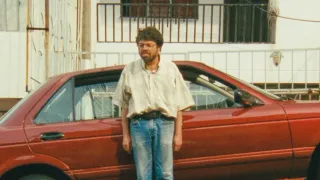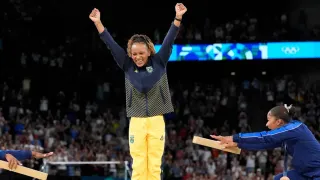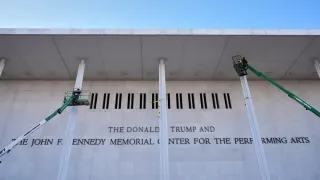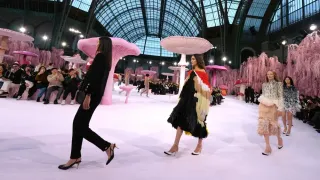March 25, 2017
Out There :: One Fraught Phone Call
Roberto Friedman READ TIME: 3 MIN.
Out There was in the house last Friday night as renowned Italian soprano Anna Caterina Antonacci (with pianist Donald Sulzen) performed Elle, the distraught character at the heart of Francis Poulenc's "La Voix humaine," along with a program of French art-songs for SF Opera Lab in the Dianne and Tad Taube Atrium Theater at the Diane B. Wilsey Center for Opera.
In "La Voix humaine" Poulenc set a text by the great gay poet Jean Cocteau. In it, a woman basically has a breakdown during a long, desperate, final phone call with her soon-to-be ex-lover. It's melodramatic, but its musical values redeem it. Poulenc's piano score complements the narrative with exquisite tension and release. A vocal and dramatic tour de force, "La Voix humaine" requires a virtuoso performer, and in Antonacci it has found one. Her dramatic delivery, her astonishing vocalism and her emotional investment were all first-rate. Sulzen's pianism displayed all of the piquancy, glitter and perfumery that Poulenc is famous for. Supertitles by Megan Young were projected onto the wall behind the performers in full stanzas, rather than by the line, which suited the material.
In the program's first half, Antonacci and Sulzen performed Hector Berlioz's dramatic ballade "La mort d'Ophelie" ("The Death of Ophelia") and a series of art-songs including Claude Debussy's trio of erotic melodies set to poems by Pierre Louys, "Chansons de Bilitis"; and Poulenc's seven-part song cycle "La fraicheur et le feu" ("The Coolness and the Fire"), settings of verses by the Surrealist poet Paul Eluard, which the composer dedicated to Igor Stravinsky.
In the sixth of these, "Homme au sourire tender" ("Man with the tender smile"), Eluard addresses the title character as well as a "woman with the tender eyelids, man with the freshened cheeks, woman with the sweet fresh arms," and so on, and concludes, "There is nothing that prevents you, my masters, from testing me."
The relatively new Taube Atrium Theater is turning out to be a versatile venue for the type of chamberworks SF Opera Lab is presenting. The intimate seating and configuration of the space are changeable, earlier this year easily accommodating composer Ted Hearne and librettist Mark Doten's oratorio "The Source." Next SF Opera Lab will present the vocal octet Roomful of Teeth in their San Francisco debut (April 23) and members of the San Francisco Opera Orchestra in "ChamberWORKS" (April 27). For SF Opera Lab tickets and information, visit sfoperalab.com or call (415) 864-3330.
Cat Sense
Director Ceyda Torun's "Kedi," now showing in Landmark Theatres, follows the street cats of contemporary Istanbul, who are well-known as an adorable presence in the ancient city. On a behavioral scale, the kitties fall somewhere between feral and tame, but the film shows that they allow people to feed and pet them. Torun's camera follows a handful of these proud furred felines, and viewers get a sense of them as individual personalities. It's a delightful acquaintance. We also meet the humans who become attached to these regal creatures.
In the movie's most harrowing sequence, one cat earns his restaurant meals by chasing a terrified mouse down into the Istanbul sewers. Using infrared photography, Torun films the thrill of the chase from the rodent's alarmed perspective, its beady eyes fixed on the presence of its prospective predator. Perhaps the next such documentary offering could show things from a Turkish mouse's point of view. Call it "Redi."






